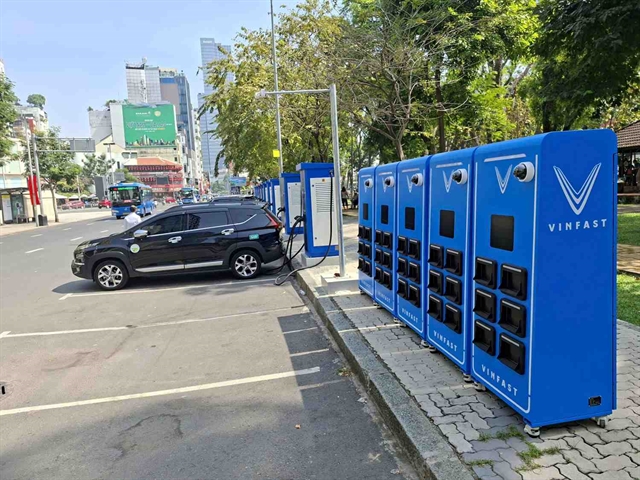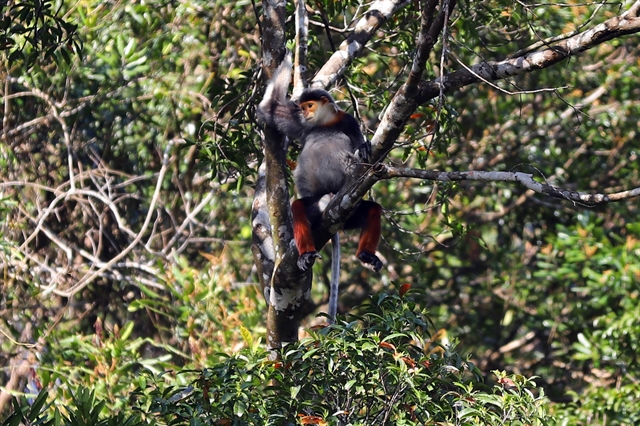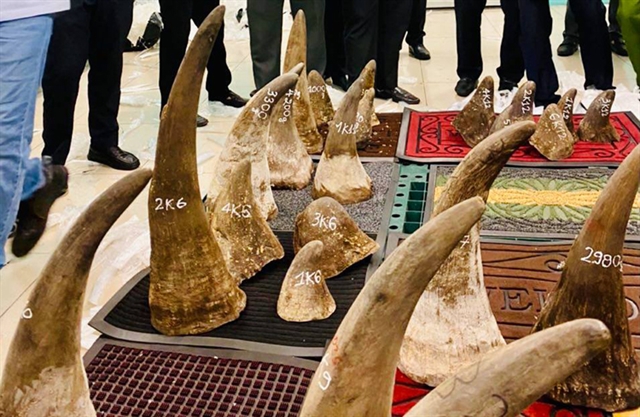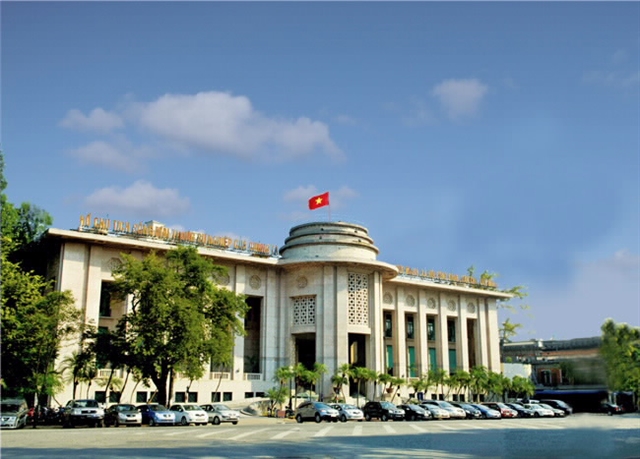 Environment
Environment

Illegal trafficking of wild animals remains a problem in Việt Nam despite the efforts of the Government and wildlife preservation organisations. There has been a decline in the number of many precious, rare and endemic species, putting many of them at risk of extinction.

|
| A grey-shanked douc langur lives at Bạch Mã National Park in central Thừa Thiên-Huế Province. — VNA/VNS Photo Đỗ Trưởng |
HÀ NỘI — Illegal trafficking of wild animals remains a problem in Việt Nam despite the efforts of the Government and wildlife preservation organisations.
There has been a decline in the number of many precious, rare and endemic species, putting many of them at risk of extinction.
Wild animals have been illegally trafficked not only inside Việt Nam but also across the border, making the country a transit place for criminal rings in trafficking ivory, pangolin scales and rhino horns from Africa.
Over the past five years, more than 11,000 wild animals have been put up for sale on the Internet, according to the Wildlife Conservation Society (WCS).
In the 2013-2017 periods, Việt Nam recorded 1,504 wildlife rule violations involving 1,461 suspects. More than 180 wildlife species were illegally transported, caged, hunted and trafficked during that period.
A report by the International Environmental Investigation Agency showed that in the 2014-2019 period, Việt Nam brought to light more than 600 wildlife trafficking cases, seizing 105 tonnes of ivory (meaning that more than 15,700 elephants were killed), along with 1.69 tonnes of rhino horn (equivalent to 610 animals); skins, bones and other products of about 228 tigers; and the body and scales of about 65,510 pangolins.
The results of a project to protect elephants in Việt Nam in the 2013-2020 period showed that Việt Nam had less than 120 elephants. Meanwhile, statistics from the International Union for Conservation of Nature revealed that in 2015, fewer than five tigers lived in nature in Việt Nam. The IUCN Red Book says that tigers may have become extinct in Việt Nam due to the illegal hunting and trafficking of the animal.
Regarding wild birds, Vietnamese and international non-governmental organisations have discovered hotspots in bird trading such as Thạnh Hóa (Long An Province), Tam Nông (Đồng Tháp Province) or areas around the Xuân Thủy, Cát Bà and Tràm Chim national parks.
Deputy director of the Convention on International Trade in Endangered Species of Wild Fauna and Flora (CITES) Management Authority of Việt Nam, Vương Tiến Mạnh said wildlife trafficking has developed complicatedly in recent years with the participation of international smuggling rings.
Between 2016 and 2020, authorised agencies discovered many cases of smuggling of wild animals originated outside Việt Nam, including the seizing of 9.1 tonnes of ivory at Tiên Sa port in central Đà Nẵng City in 2019 and 93kg of rhino horns at Tân Sơn Nhất International Airport in December last year.

|
| Rhino horns seized at Tân Sơn Nhất International Airport in HCM City last December. — Photo baotintuc.vn |
Smuggling of wild animals at traditional markets has now been replaced by online methods via social networks and e-commerce sites.
Deputy director of the Education for Nature Việt Nam (ENV), Bùi Thị Hà said the ENV recorded 1,759 cases of violations relating to wild animals via the internet in 2020 and 1,788 cases via social networks and e-commerce sites in the first three quarters of this year.
Stricter measures needed
Many experts and managers said although the State has issued many regulations to protect wild animals but this task has not been effective enough due to overlapping and inconsistent regulations and many problems emerging in reality without proper adjustment of related regulations. They proposed to review, amend and supplement to gradually complete the legal system about wild animals and gradually build a law on protecting wild animals.
Regarding regulations about breeding a number of rare, precious species which are at risk of extinction and prioritised for protection, Deputy director of ENV Hà said apart from guiding, encouraging and creating conditions for individuals and organisations to farm wild animals for non-commercial purposes, authorised agencies and localities needed to tighten management over the farming of wild animals for commercial purposes.
Hoàng Thị Minh Hồng, Director of CHANGE, a non-profit organisation that protects the environment, said most of the localities that become hot spots of illegal wildlife trading lacked strict supervision and management from local authorities. Less attention had been paid to wildlife advertisements and transactions online. Inspection and supervision tasks also faced many difficulties because it was not easy to distinguish between wild animals that are banned from hunting, trading, transporting and consuming with those allowed for trading. All urged for determination and greater efforts from local authorities, according to Hồng.
In order to prevent illegal trading of wild animals and limit risk of outbreak of diseases originating from animals, agencies should review and eliminate all illegal wildlife markets, clarify the responsibilities of authorities of localities where violations happened, she said.
Mạnh from CITES Vietnam pointed to the need to increase inspection and strictly punish violators and promote information dissemination to raise public awareness of illegal wildlife trading and stopping consuming wild animal products.
Apart from many existing regulations, the Prime Minister issued a Directive in July 2020 on a number of urgent solutions for wildlife management, including a request to ban the imports of live wild animals and eliminate illegal wildlife markets.
To prevent wildlife violations via the internet, the Directive also stressed responsibilities of ministries and agencies in preventing and strictly handling activities abusing the internet to advertise and trade wildlife products prohibited by laws.
SIDE BAR
A rhino horn trader has been sentenced to 14 years in jail this week, the longest ever prison term a Vietnamese court has handed down for the crime, a local conservation group said on Wednesday.
Đỗ Minh Toản, 36, from northern Hà Nam Province, was jailed for trading and trafficking rhino horns from the United Arab Emirates (UAE) into Việt Nam.
It came after a 2019 discovery by customs officials at Hà Nội's Nội Bài international airport of 55 pieces of rhino horn - weighing around 125kg - in a carefully disguised shipment.
According to ENV, the punishment is the toughest to date in the country for crimes relating to rhino horns and the wildlife trade. — VNS




